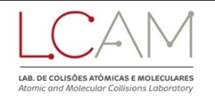UK-Portugal British Council
Treaty of Windsor / CRUP
The Earth’s environment is an incredibly complex system controlled by an interconnected set of physical, chemical and biological processes many of which we have yet to understand. One of the most important goals of modern environmental research is to determine the role of biological activity on our climate. Although industry ejects huge amounts of pollutant gases into our atmosphere these are still minor compared to the incredible amounts of materials arising from flora and fauna. Hence the biosphere plays a key role in regulating the Earth’s climate and may be used to mitigate our own industrial emissions. However only recently have we begun to quantify the emissions of VOCs and other biologically produced species and our knowledge of how these effect (and are influenced by) our climate remains poor. Research teams at the Open University, UK (Professor Nigel Mason, Ms Elizabeth Drage and Ms Sarah Webb) and Professor Paulo Limao-Vieira and Mr Rodrigo Antunes and Mr Paulo Gomes at the New University of Lisbon have studied the spectroscopy of biogenic gases such as the monoterpenes released from the pine forests of Portugal. Infrared spectroscopy has allowed us to provide a method for detecting such emissions from satellites while ultraviolet data allows us to study the complex chemistry that leads to the formation of an organic aerosol, often seen as a blue haze over mountains. This project has been selected as one of only 12 projects from over 690 projects funded as part of the British Council’s Treaty of Windsor Scientific programme to celebrate outstanding research collaborations between UK and Portuguese research teams. The work will be featured in a special brochure with interactive CD, to celebrate the programme’s 20th anniversary.

